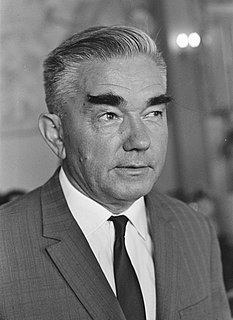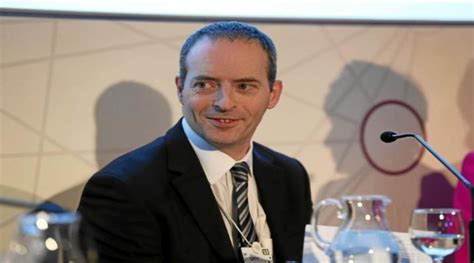A Quote by Stefan Zweig
One never gets to know a person's character better than by watching his behavior during decisive moments.... It is always only danger which forces the most deeply hidden strengths and abilities of a human being to come forth.
Related Quotes
Yet still, there are those special secret moments in our lives, when we smile unexpectedly-when all our forces are resolved. A woman can often see these moments in us, better than a man, better than we ourselves, even. When we know these moments, when we smile, when we are not on guard at all-these are the moments when our most important forces show themselves; whatever it is you are doing at such a moment, hold on to it, repeat it-for that certain smile is the best knowledge that we ever have of what our hidden forces are, and where they lie, and how they can be loosed.
I think thing that makes Batman so endlessly interesting is that he's one of the most flawed and deeply human characters, even though he seems completely the most inhuman and infallible in costume. Psychologically he's one of the most complicated in both his strengths and his weaknesses. For me, one of his great strengths and weaknesses is that confidence. His emotional self-protection is one of the things that makes him heroic and sacrificing; he doesn't have a personal life. He sacrifices those to be the best hero he can be.
No one is without Christianity, if we agree on what we mean by that word. It is every individual's individual code of behavior by means of which he makes himself a better human being than his nature wants to be, if he followed his nature only. Whatever its symbol - cross or crescent or whatever - that symbol is man's reminder of his duty inside the human race.
Kafka was a complex character in a complex historical era. In order to understand him, you have to do more than cite facts. It is necessary to connect the facts in a meaningful way. His relationship to Judaism, to his father, to women, to literature - all of this is interconnected; and there are decisive moments in his life, in which such interactions suddenly become visible and can be experienced in an almost sensuous manner. It is these moments above all that I try to narrate dramatically.
Because you are never here but always there, I forget not you but what you look like You drift down the street in the rain, your face dissolving, changing shape, the colours running together My walls absorb you, breathe you forth again, you resume yourself, I do not recognize you You rest on the bed watching me watching you, we will never know each other any better than we do now
She was in that highly-wrought state when the reasoning powers act with great rapidity: the state a man is in before a battle or a struggle, in danger, and at the decisive moments of life - those moments when a man shows once and for all what he is worth, that his past was not lived in vain but was a preparation for these moments.
With each character in a movie, I'm looking for a human being. I'm looking for a person. And to me, I'm looking for a person that's full of strengths and weaknesses, a person that's full of successes and failures, a person that's full of joy and sorrow. I'm interested in people that are human beings that are alive.
It is an absolutely vain endeavor to attempt to reconstruct or even comprehend the nature of a human being by simply knowing the forces which have acted upon him. However deeply we should like to penetrate, however close we seem to be drawing to truth, one unknown quantity eludes us: man's primordial energy, his original self, that personality which was given him with the gift of life itself. On it rests man's true freedom; it alone determines his real character.
There is no virtue in being uncritical; nor is it a habit to which the young are given. But criticism is only the burying beetle that gets rid of what is dead, and, since the world lives by creative and constructive forces, and not by negation and destruction, it is better to grow up in the company of prophets than of critics.
Well, you put a little piece of yourself into every character that you do. Even if you're playing some psychotic person, which of course I'm not, some part of you is in that character and it's hopefully believable. I always come back to the fact that my own instinct is better than something I build in my mind.






































